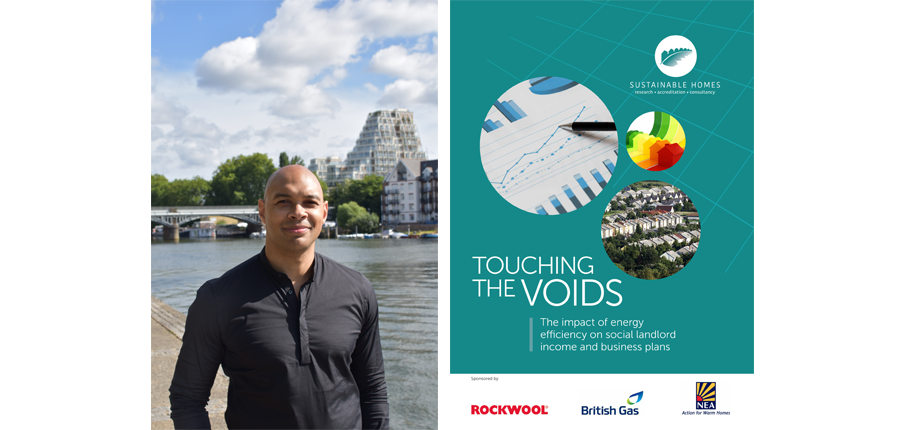“Putting it very simply, better homes perform better for all,” says Bevan Jones, manging director of Sustainable Homes, the research, accreditation and consultancy organisation behind SHIFT – the sustainability standard for the housing sector.
Sustainable Homes sees itself as a sustainability leader in the housing sector and Mr Jones sums up the organisation’s purpose as “every home encouraging more sustainable lives.”
The not for profit organisation seeks to influence policy, deliver learning to the sector and provide insight through its Awards, events and conferences. It supports the housing sector through research, accreditation and consultancy to make a difference both to how businesses are run and upon individual people’s lives.

SHIFT is the sustainability standard for the housing sector, recognised by The Homes and Communities Agency (HCA) and backed by Government. It is an independent assessment and accreditation scheme that demonstrates organisations are delivering against challenging environmental targets.
The Home Quality Mark (HQM), created by BRE (Building Research Establishment) sits in the SHIFT assessment as a benchmark but interestingly Jones feels that social housing providers are reluctant to embrace the HQM: “If you talk to housebuilders, they see HQM as a bit of a badge of honour and it doesn’t matter to them how many stars they can achieve.
“Social Housing providers are a bit scared of the HQM and fearful that they will be judged for failing to achieve the highest possible rating.” However, Mr Jones feels that the reluctance of the sector is misplaced and that they should embrace HQM as this allows them to talk about the quality of their products.
SHIFT Accreditation therefore aims to help landlords demonstrate delivery against challenging environmental targets, with SHIFT providing a route-map for improvement and allowing organisations to compare performance against their peers.
Assessments are undertaken by a specialist team of assessors from Sustainable Homes and organisations that achieve SHIFT accreditation become part of an exclusive network that gets a range of additional benefits from Sustainable Homes, including consultancy support, exclusive events, input to lobbying campaigns, offers from SHIFT partners, discounts for training courses and tailored support and advice.
The SHIFT assessment measures organisations against more than 50 environmental criteria, including CO2 emissions, water use, supply chain, landfill waste and response to climate change risks. Organisations that are assessed (including those in the supply chain) receive SHIFT Commended, Bronze, Silver, Gold or Platinum accreditation, depending on their performance, and a bespoke report with tailored recommendations on how to improve.
Sustainable Homes also organises the SHIFT Awards (taking place in November) which are the sustainability awards for the housing sector recognising outstanding sustainability projects and achievements. Now in its 9th year, last year’s awards brought 230 housing professionals together in a high profile event with outstanding entries.
“Our clients have saved over 82,000 tonnes of CO2 and hundreds of thousands of pounds in utility and residents’ bills and we work with housing providers across all tenures, local authorities, central
government and the supply chain,” explains Mr Jones.
The impact of empty properties
Sustainable Homes was also behind for the ground breaking ‘Touching the Voids’ Report (www.sustainablehomes.co.uk/research-project/rent-arrears/) which looks at the impact of energy efficiency on social landlord income and business plans.
The research examined data from over 200,000 homes, looking at benefits of energy efficient homes for social landlords’ income. The study found that:
• as homes become more energy efficient they are void for a shorter length of time – on average, 31% shorter for band B properties compared to those in bands E and F
• landlords with more energy efficient stock spend less on refurbishing void homes, less on repairs and less on staff time to manage voids
• arrears are on average half a month higher in Band F properties than in other bands
• other cost savings identified include time spent seeking overdue rent payment, legal costs and court costs which decline by around 35% for more energy efficient homes
“It’s all about avoiding stranded assets and this calls for a new approach where every aspect of the supply chain shifts the focus onto sustainability,” explains Mr Jones. “If landlord organisations can lead the drive to better homes, this will not only benefit them as individual organisations but also their tenants as well as the overall environment.”
Sustainable Homes has recently expanded its offering to include the private sector and is able to offer advice on environmental performance, climate risk, new-build, supply chain, post occupancy evaluation and CO2 emissions.
The organisation also runs an annual conference in September for Shift landlords and is using data from this group to prepare an annual review of the sector. This will be launched at CIH Manchester at the end of June.
“There’s lots more we are looking into,” adds Jones, explaining that in addition to fuel poverty, retrofitting older properties and new methods of construction, such as modular building, Sustainable Homes is looking at standards for the private rental sector.
“We know there is much that can be done and we are looking at all aspects of social housing and the rented sector to highlight the very best as a showcase for what can readily be achieved.”
Further details on SHIFT, Touching the Voids report and the general work and consultancy available from Sustainable Homes can be found by visiting: www.sustainablehomes.co.uk
- Log in to post comments














